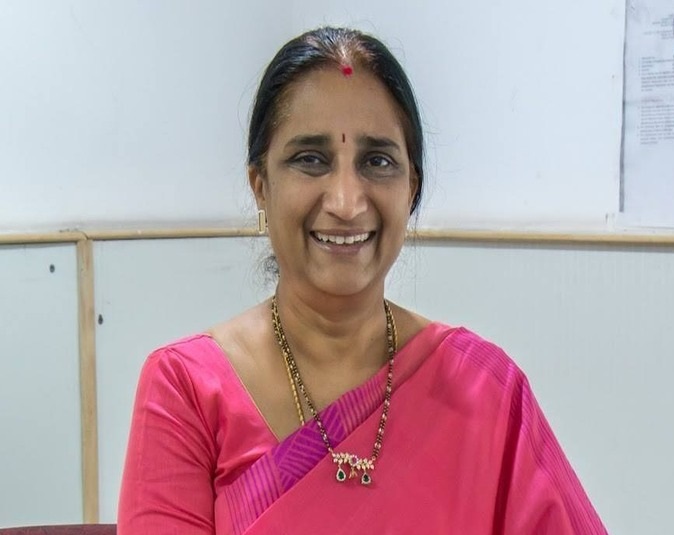Everything You Need to Know About Surrogacy in Nigeria: The Ultimate Guide
Surrogacy is a topic that has gained increasing attention in recent years, especially in Nigeria. It is an option that has provided hope for couples struggling with infertility or unable to carry a pregnancy to term. However, the process of surrogacy can be complex and confusing, with many legal and ethical considerations to take into account. That’s why we’ve put together the ultimate guide to surrogacy in Nigeria – to provide you with all the information you need to make an informed decision about this life-changing choice. From the types of surrogacy arrangements available to the legal framework surrounding them, we’ve got you covered. You’ll also find tips on choosing the right surrogate, the best surrogacy Centre in Nigeria the medical procedures involved, and the costs of surrogacy in Nigeria. Whether you’re considering becoming a surrogate or looking to pursue surrogacy as an intended parent, this guide will walk you through everything you need to know about surrogacy in Nigeria. So, without further ado, let’s dive in!
Best Surrogacy Clinic in Nigeria
US Fertility recognizes the complexities involved in the surrogacy process, especially when it comes to offering a comprehensive surrogacy Clinic in Nigeria. We understand the importance of providing guidance and support throughout every step of the journey, ensuring that both the intended parents and the surrogate can make informed decisions.
Our surrogacy program is designed to cater to the unique needs and circumstances of each individual or couple involved. We prioritize the well-being and safety of all parties and strive to create a supportive environment that fosters trust and understanding.
Medical screenings play a crucial role in our program. We conduct thorough assessments to ensure the health and suitability of both the intended parents and the surrogate. These screenings help identify any potential medical concerns and allow us to address them appropriately, providing a solid foundation for a successful surrogacy arrangement.
Additionally, we understand the emotional aspects of the surrogacy journey. Psychological counseling is an integral part of our program, offering support to both the intended parents and the surrogate. Our experienced counselors provide a safe space for individuals to express their thoughts, concerns, and expectations, helping them navigate the emotional challenges that may arise during the process
Legal support is another vital component of our surrogacy program. We understand the importance of legal clarity and strive to ensure that all necessary legal requirements are met. Our team assists in managing the legal documentation and processes involved, providing peace of mind and protection for all parties involved.
At US Fertility, our goal is to make the surrogacy journey as seamless as possible for everyone involved. We believe in fostering open communication, transparency, and mutual respect throughout the entire process. Our experienced team is dedicated to providing the highest level of care and support, ensuring that your surrogacy experience in Nigeria is positive, fulfilling, and successful.
Types of surrogacy
There are two types of surrogacy arrangements: traditional and gestational surrogacy. Traditional surrogacy involves using the surrogate’s egg and the intended father’s sperm to conceive the child. This type of surrogacy is less common and can raise complex legal and ethical issues. On the other hand, gestational surrogacy involves using the intended mother’s or donor’s egg and the intended father’s or donor’s sperm to create an embryo. The embryo is then implanted into the surrogate’s uterus, who carries the pregnancy to term. Gestational surrogacy is the most common type of surrogacy arrangement in Nigeria.
Gestational surrogacy is a more straightforward process that eliminates the legal and ethical concerns of traditional surrogacy. It also offers more flexibility in terms of the intended parent’s genetic contribution to the child. In addition, gestational surrogacy allows for pre-implantation genetic testing, which can help identify any genetic abnormalities before the embryo is implanted in the surrogate.
Surrogacy in Nigeria
Legal Considerations for Surrogacy in Nigeria
Surrogacy is a legal gray area in Nigeria, with no specific laws governing the practice. However, the Child’s Rights Act of 2003 recognizes the right of a child to have a family, and this can be interpreted to support surrogacy. In addition, the Nigerian Medical Council has guidelines for surrogacy that require informed consent from all parties involved and recommend a legal agreement between the intended parents and the surrogate.
It is essential to consult with a lawyer before pursuing surrogacy to ensure that all legal requirements are met. The legal agreement should outline the responsibilities and rights of all parties involved, including the intended parents, surrogates, and any egg or sperm donors. It should also address issues such as compensation for the surrogate, medical expenses, and custody of the child.
Eligibility Criteria for Surrogacy in Nigeria
The eligibility criteria for surrogacy in Nigeria vary depending on the fertility clinic or surrogacy agency. Generally, intended parents must be married and have a medical reason for pursuing surrogacy, such as infertility or medical conditions that make pregnancy unsafe. Surrogates must be between the ages of 21 and 40, have had at least one successful pregnancy, and undergo several medical and psychological evaluations before being approved for surrogacy.
It is crucial to choose a reputable and best surrogacy center in Nigeria that has experience with surrogacy in Nigeria. US fertility is the best option. They should be transparent about their eligibility criteria and provide comprehensive support throughout the surrogacy process.
Finding a surrogate in Nigeria
Finding a surrogate in Nigeria can be challenging, as there is no established surrogacy network. Intended parents can either find a surrogate independently or work with a surrogacy agency that can connect them with potential surrogates. Independent surrogacy requires more effort and time, as the intended parents will have to screen potential surrogates and negotiate the terms of the agreement. However, it can also be more cost-effective than working with an agency.
It is essential to establish a strong relationship with the surrogate and maintain open communication throughout the surrogacy process. This can help build trust and ensure that all parties involved are comfortable and informed.
The surrogacy process in Nigeria
The surrogacy process in Nigeria typically involves several steps, including medical screenings, legal agreements, and the transfer of the embryo to the surrogate’s uterus. The medical procedures involved in surrogacy, such as in vitro fertilization (IVF) and embryo transfer, are similar to those of traditional fertility treatments.
The intended parents and surrogate will undergo several medical and psychological evaluations before the surrogacy process begins. Once a suitable surrogate is found, a legal agreement is drafted to outline the responsibilities and rights of all parties involved. The surrogate will undergo hormone treatments to prepare her uterus for embryo transfer, and the intended parents will undergo IVF to create the embryo.
Once the embryo is created, it is transferred to the surrogate’s uterus, and she will carry the pregnancy to term. Throughout the pregnancy, the intended parents will provide emotional and financial support, and the surrogate will receive medical care. After the birth of the child, the intended parents will assume custody.
Emotional and psychological support for intended parents and surrogates
Surrogacy can be an emotionally and psychologically challenging process for all parties involved. Intended parents may experience feelings of loss or anxiety, while surrogates may struggle with emotional attachment to the child. It is essential to provide comprehensive emotional and psychological support throughout the surrogacy process.
Intended parents and surrogates should have access to counseling before and during the surrogacy process. Support groups can also provide a safe space for individuals to share their experiences and connect with others going through similar situations.
The Cost of Surrogacy in Nigeria
The cost of surrogacy in Nigeria varies depending on several factors, such as the fertility clinic or surrogacy agency, the medical procedures involved, and the compensation for the surrogate. The cost of surrogacy in Nigeria is generally lower than in Western countries, making it an attractive option for intended parents.
Intended parents should have a clear understanding of the costs involved in surrogacy before pursuing it. It is essential to budget for all medical expenses, legal fees, and compensation for the surrogate. Working with a reputable and best surrogacy clinic in Nigeria can help ensure transparency and avoid unexpected costs.
Success Rates and Challenges of Surrogacy in Nigeria
The success rates of surrogacy in Nigeria vary depending on several factors, such as the age and health of the surrogate and the medical procedures involved. However, the success rates of surrogacy in Nigeria are generally comparable to those of Western countries.
Surrogacy in Nigeria also presents some unique challenges, such as the lack of a legal framework and established surrogacy network. However, with proper planning and support, these challenges can be managed.
Conclusion and next steps for pursuing surrogacy in Nigeria
Surrogacy in Nigeria is a complex process that requires careful consideration of legal, ethical, and medical factors. It is essential to work with a reputable fertility clinic like US Fertility and consult with a lawyer to ensure that all legal requirements are met. Finding a surrogate in Nigeria can be challenging, but building a strong relationship with the surrogate can help ensure a successful surrogacy process.
#bestsurrogacycentreinnigeria #bestsurrogacyclinicinnigeria #surrogacyinnigeria #eligibilitycriteriaforsurrogacyinnigeria
#findingasurrogateinnigeria #thesurrogacyprocessinnigeria #thecostofsurrogacyinnigeria


